Alexander Veicht
GeoCalib: Learning Single-image Calibration with Geometric Optimization
Sep 10, 2024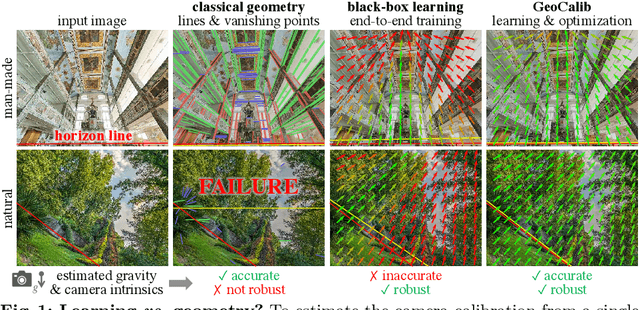
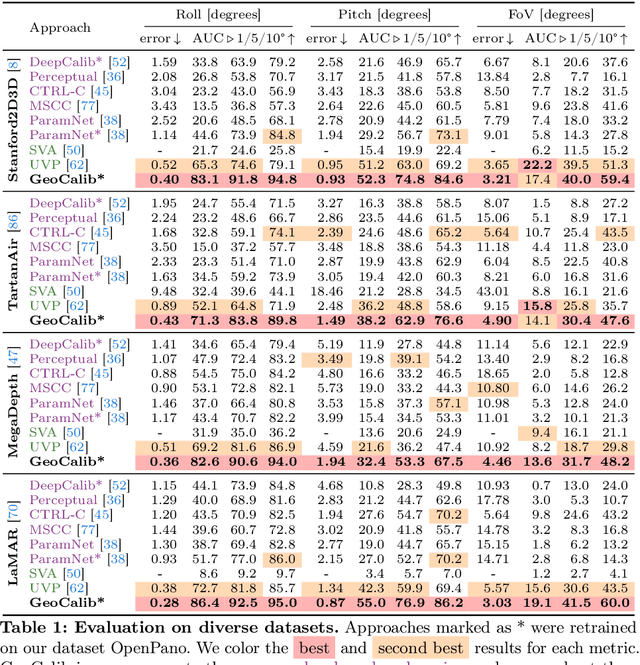


Abstract:From a single image, visual cues can help deduce intrinsic and extrinsic camera parameters like the focal length and the gravity direction. This single-image calibration can benefit various downstream applications like image editing and 3D mapping. Current approaches to this problem are based on either classical geometry with lines and vanishing points or on deep neural networks trained end-to-end. The learned approaches are more robust but struggle to generalize to new environments and are less accurate than their classical counterparts. We hypothesize that they lack the constraints that 3D geometry provides. In this work, we introduce GeoCalib, a deep neural network that leverages universal rules of 3D geometry through an optimization process. GeoCalib is trained end-to-end to estimate camera parameters and learns to find useful visual cues from the data. Experiments on various benchmarks show that GeoCalib is more robust and more accurate than existing classical and learned approaches. Its internal optimization estimates uncertainties, which help flag failure cases and benefit downstream applications like visual localization. The code and trained models are publicly available at https://github.com/cvg/GeoCalib.
A Deep Learning Approach for the Segmentation of Electroencephalography Data in Eye Tracking Applications
Jun 17, 2022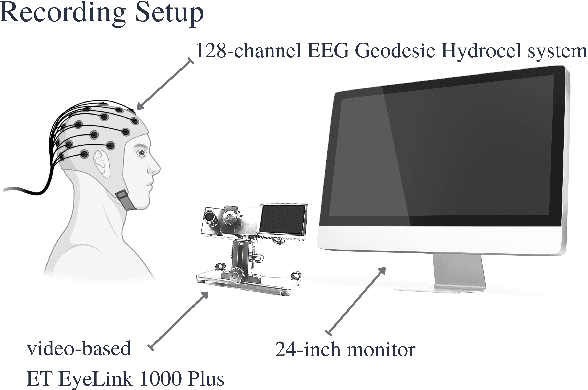
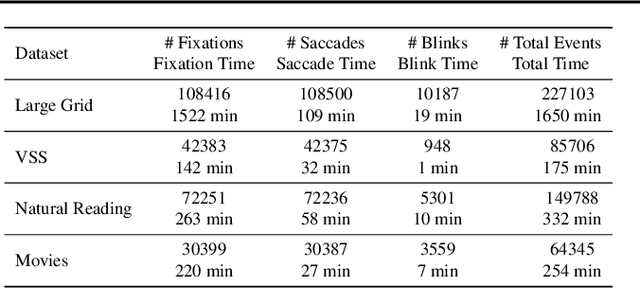
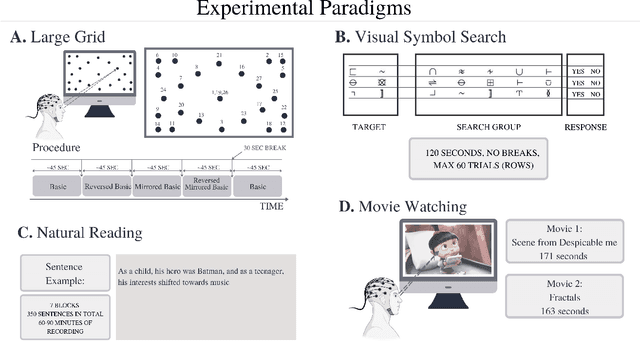
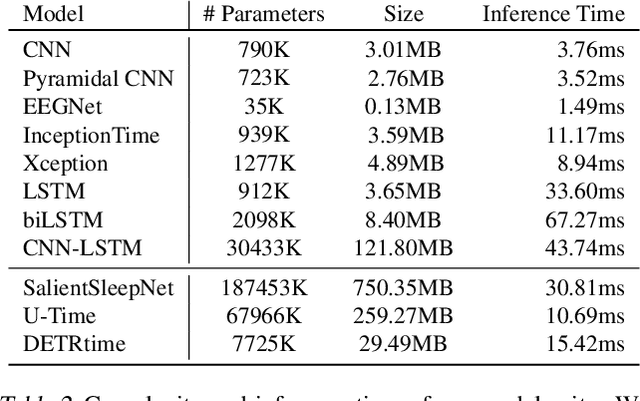
Abstract:The collection of eye gaze information provides a window into many critical aspects of human cognition, health and behaviour. Additionally, many neuroscientific studies complement the behavioural information gained from eye tracking with the high temporal resolution and neurophysiological markers provided by electroencephalography (EEG). One of the essential eye-tracking software processing steps is the segmentation of the continuous data stream into events relevant to eye-tracking applications, such as saccades, fixations, and blinks. Here, we introduce DETRtime, a novel framework for time-series segmentation that creates ocular event detectors that do not require additionally recorded eye-tracking modality and rely solely on EEG data. Our end-to-end deep learning-based framework brings recent advances in Computer Vision to the forefront of the times series segmentation of EEG data. DETRtime achieves state-of-the-art performance in ocular event detection across diverse eye-tracking experiment paradigms. In addition to that, we provide evidence that our model generalizes well in the task of EEG sleep stage segmentation.
 Add to Chrome
Add to Chrome Add to Firefox
Add to Firefox Add to Edge
Add to Edge